 2025-07-23
HaiPress
2025-07-23
HaiPress
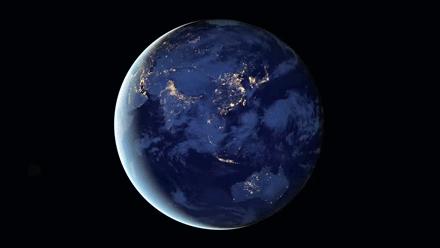
Time is speeding up – at least,one ‘type’ of time is
Lisa Maynard-Atem,47,can barely remember what she had for breakfast three days ago,let alone what happened last year.
Halfway into 2025,we’ve had World War Three scares,deadly weather events,a whirlwind Trump presidency and high-profile court cases.
For people like Lisa,these happened yesterday. Or was it last month? Maybe 2016?
‘Time feels like it’s on fast-forward,’ Lisa,a branding consultant living in Manchester,told Metro.
‘It still feels like it’s 2020 when we were in lockdown. One minute,it was January and my younger sister was getting married. Next,it was March,and Boris Johnson was telling us to stay home
‘One night,I went to bed and woke in 2025.’
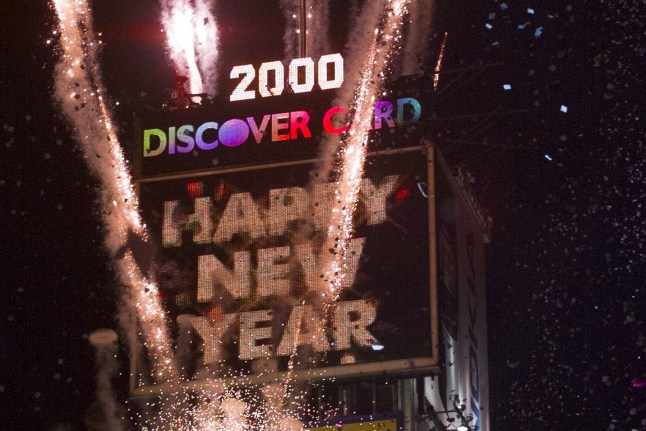
Was the year 2000 25 years ago,or just yesterday? (Picture: Bill Tompkins/Getty Images)
Time flies when we’re having fun,as the saying goes. But lately,it’s flying even if we’re having no fun at all.
And you’re not imagining it – today will be one of the shortest days since records began. So,what’s going on? Is time really going faster?
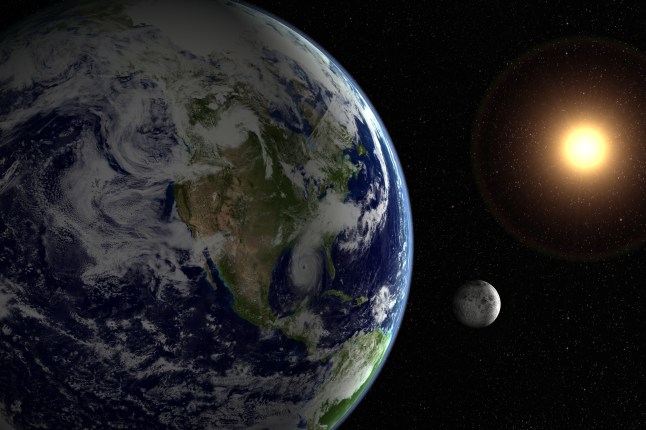 The Moon’s gravity will make tomorrow slightly shorter (Picture: Getty Images)The Earth’s gravitational dance with the Moon causes our planet to bulge,Holme tells Metro.‘It takes some time for the material to recover and go back. Try pulling the skin on your arm – or better,find an old person like me and do it to them. When you let go,the skin returns,but it takes a little time,’ he says.‘In the time it takes to go down,the Earth has rotated,which means the bulge is not aligned with the direction of the Moon,but rotated out of line.‘The out-of-line bulge is pulled by the Moon in the opposite direction to the rotation,so it tends to act against and reduce Earth’s rotation. This slows down the speed of rotation,and so increases the length of day.’But today,the Moon is far enough away enough that a day will be shorter.
The Moon’s gravity will make tomorrow slightly shorter (Picture: Getty Images)The Earth’s gravitational dance with the Moon causes our planet to bulge,Holme tells Metro.‘It takes some time for the material to recover and go back. Try pulling the skin on your arm – or better,find an old person like me and do it to them. When you let go,the skin returns,but it takes a little time,’ he says.‘In the time it takes to go down,the Earth has rotated,which means the bulge is not aligned with the direction of the Moon,but rotated out of line.‘The out-of-line bulge is pulled by the Moon in the opposite direction to the rotation,so it tends to act against and reduce Earth’s rotation. This slows down the speed of rotation,and so increases the length of day.’But today,the Moon is far enough away enough that a day will be shorter. Milliseconds can make all the difference (Picture: Getty Images)Today will only be a millisecond quicker than usual – but this doesn’t explain why people like Lisa feel like time has been a blur for years.We know how our brains deal with senses,like touch and taste,but how we sense time is a mystery,says Devin Terhune,a reader in experimental psychology at King’s College London.Certain parts of the brain have been identified as possible stopwatches,such as the basal ganglia or cerebellum,‘but their precise role in timing has not been clarified,’ Terhune tells Metro.‘Research suggests that our variations in our experience of time may be due to variations in perceptual processing,such as our experience of salient or novel events or changes in sensory inputs.‘So,a complex scene might be perceived as lasting longer than one in which there are very few changes.’Stefano Arlaud,a researcher on time perception and metacognition of time perception at Queen Mary University of London,tells Metro that we might have an internal clock made of a ‘pacemaker’ that emits pulses that signify the passing of time.
Milliseconds can make all the difference (Picture: Getty Images)Today will only be a millisecond quicker than usual – but this doesn’t explain why people like Lisa feel like time has been a blur for years.We know how our brains deal with senses,like touch and taste,but how we sense time is a mystery,says Devin Terhune,a reader in experimental psychology at King’s College London.Certain parts of the brain have been identified as possible stopwatches,such as the basal ganglia or cerebellum,‘but their precise role in timing has not been clarified,’ Terhune tells Metro.‘Research suggests that our variations in our experience of time may be due to variations in perceptual processing,such as our experience of salient or novel events or changes in sensory inputs.‘So,a complex scene might be perceived as lasting longer than one in which there are very few changes.’Stefano Arlaud,a researcher on time perception and metacognition of time perception at Queen Mary University of London,tells Metro that we might have an internal clock made of a ‘pacemaker’ that emits pulses that signify the passing of time.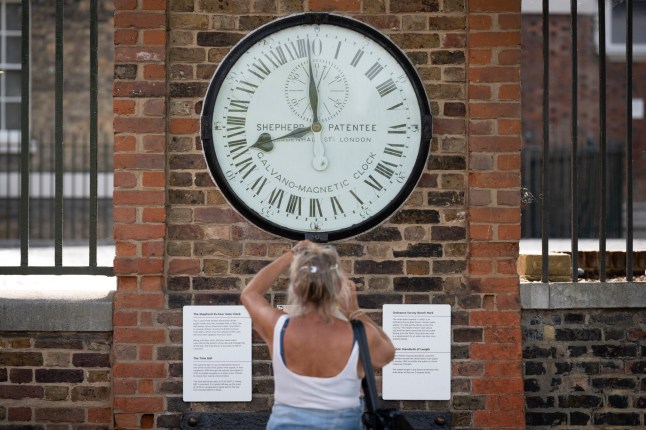 What many of us think of as time is ‘clock time’ (Picture: Getty Images/Richard Baker)‘The more attentively we monitor time,the more pulses are registered,and the longer an event appears to last,’ he says.‘When attention is directed elsewhere – toward a demanding task or a flood of sensory input – this gate narrows,pulses go uncounted and time seems to contract.’This plays into how life seems to feel slower when you’re young and turbocharged as you get older,as it’s proportional to what we’ve already lived through. A year for a two-year-old is half their life,and is only one-70th for a 70-year-old.‘Memory becomes the clock,’ says Arlaud,adding: ‘Events that lack novelty or variation feel short in memory because the brain has stored fewer temporal “markers”.’
What many of us think of as time is ‘clock time’ (Picture: Getty Images/Richard Baker)‘The more attentively we monitor time,the more pulses are registered,and the longer an event appears to last,’ he says.‘When attention is directed elsewhere – toward a demanding task or a flood of sensory input – this gate narrows,pulses go uncounted and time seems to contract.’This plays into how life seems to feel slower when you’re young and turbocharged as you get older,as it’s proportional to what we’ve already lived through. A year for a two-year-old is half their life,and is only one-70th for a 70-year-old.‘Memory becomes the clock,’ says Arlaud,adding: ‘Events that lack novelty or variation feel short in memory because the brain has stored fewer temporal “markers”.’ Lisa said that the coronavirus pandemic doesn’t feel like too long ago (Picture: AFP)We probably won’t clock – pun intended – that we’ve lost milliseconds tomorrow. But losing mind time is taking a toll on us.What Lisa is describing is called ‘digital hyperstimulation’,which is turning our brains into ‘sieves’.Arlaud says: ‘The digital environment offers relentless novelty – news updates,messages,entertainment – but this novelty is often shallow and rapidly replaced.‘Paradoxically,this leads to poor memory encoding: the constant churn of low-significance content prevents the deep processing needed to form durable memory.’Think of those nights you spent in bed scrolling on TikTok for a few minutes,only to realise it’s been three hours.
Lisa said that the coronavirus pandemic doesn’t feel like too long ago (Picture: AFP)We probably won’t clock – pun intended – that we’ve lost milliseconds tomorrow. But losing mind time is taking a toll on us.What Lisa is describing is called ‘digital hyperstimulation’,which is turning our brains into ‘sieves’.Arlaud says: ‘The digital environment offers relentless novelty – news updates,messages,entertainment – but this novelty is often shallow and rapidly replaced.‘Paradoxically,this leads to poor memory encoding: the constant churn of low-significance content prevents the deep processing needed to form durable memory.’Think of those nights you spent in bed scrolling on TikTok for a few minutes,only to realise it’s been three hours.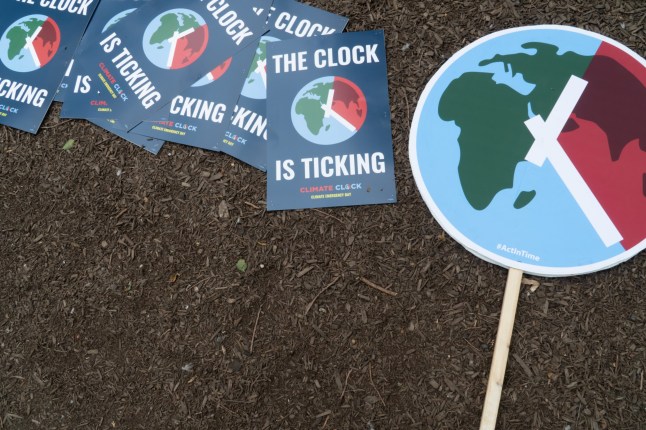 Many of us speak of time in the same way we do speed (Picture: UCG/Universal Images Group/Getty Images)We now feel ‘behind’ all the time,leaving us stressed and burnt out.‘People are not just misperceiving time – they’re mismanaging it,reinforcing a feedback loop of overload and disconnection,’ Arlaud warns.Lisa knows this feeling all too well. Making every day meaningful as someone self-employed has left her in an ‘odd time warp’.‘Weeks bleed into months,’ Lisa says,‘and,suddenly,two years have passed.’
Many of us speak of time in the same way we do speed (Picture: UCG/Universal Images Group/Getty Images)We now feel ‘behind’ all the time,leaving us stressed and burnt out.‘People are not just misperceiving time – they’re mismanaging it,reinforcing a feedback loop of overload and disconnection,’ Arlaud warns.Lisa knows this feeling all too well. Making every day meaningful as someone self-employed has left her in an ‘odd time warp’.‘Weeks bleed into months,’ Lisa says,‘and,suddenly,two years have passed.’